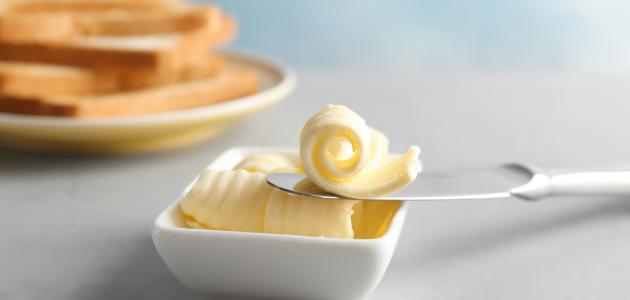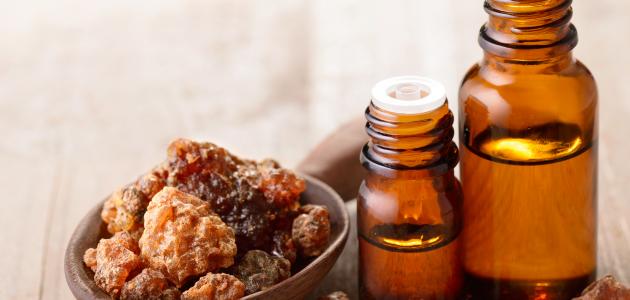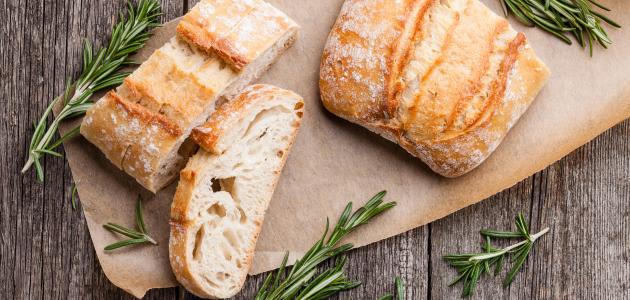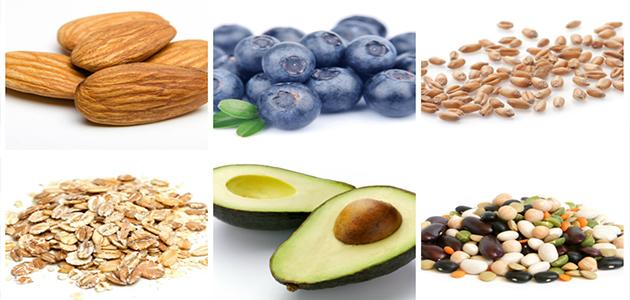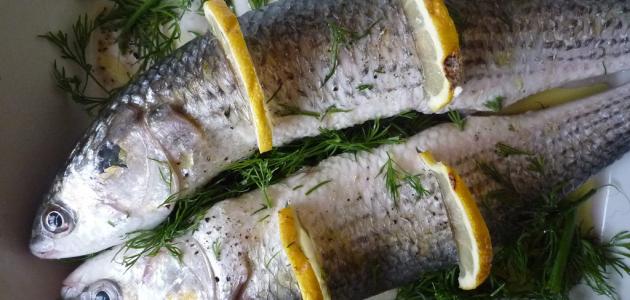Contents
Butter
Butter is a dairy product that is usually made from cow's milk by churning the milk to separate the solid fats from the remaining liquid known as buttermilk. Butter may also be made from the milk of other mammals such as: sheep or goats, Or buffalo, [1] It should be noted that there are many types of butter that differ in the degree of their salinity, among them salty, in which the percentage of salt is more than 3%, and semi-salty in which the percentage of salt ranges from 0.5% to 3%, in addition to sweet butter that is not Salted, to which no salt is added, and their colors range from pale yellow to dark. [2]
The nutritional value of butter
The following table lists some of the nutrients found in 100 grams of unsalted butter, [3] and salted butter: [4]
| Nutrients | Unsalted butter | Salted butter |
|---|---|---|
| Water (milliliter) | 17.94 | 15.87 |
| Calories (kcal) | 717 | 717 |
| Protein (grams) | 0.85 | 0.85 |
| Fat (grams) | 81.11 | 81.11 |
| Saturated fat (grams) | 50.489 | 51.368 |
| Monounsaturated fat (grams) | 23.43 | 21.021 |
| Polyunsaturated fats (grams) | 3.01 | 3.043 |
| Carbohydrates (grams) | 0.06 | 0.06 |
| Calcium (milligrams) | 24 | 24 |
| Iron (milligrams) | 0.02 | 0.02 |
| Magnesium (milligrams) | 2 | 2 |
| Phosphorous (milligrams) | 24 | 24 |
| Potassium (milligrams) | 24 | 24 |
| Sodium (milligrams) | 11 | 643 |
| Zinc (milligrams) | 0.09 | 0.09 |
| Vitamin B12 (μg) | 0.17 | 0.17 |
| Vitamin A (μg) | 684 | 684 |
| Vitamin E (milligrams) | 2.32 | 2.32 |
| Vitamin K (μg) | 7 | 7 |
| Cholesterol (milligrams) | 215 | 215 |
Is butter good for health
Butter is known to be a high-calorie and saturated fat food, but eating it in moderation as part of a balanced diet that includes various healthy sources of fats, such as: olive oil, avocados , nuts, seeds, and fatty fish may be healthy, [5] as follows: The beneficial nutrients available in butter:
- A source of some vitamins: Butter contains some important vitamins for the body, especially fat-soluble vitamins, including: [6]
- Vitamin A: It is one of the most abundant vitamins in butter, as one tablespoon of it provides 11% of the recommended daily intake of vitamin A.
- Vitamin D.
- Vitamin E: which acts as an antioxidant, and is found in many fatty foods.
- Vitamin B12: Also known as cobalamin, it is only found in animal foods such as eggs, meat, dairy products, and fermented foods.
- Vitamin K2: It is a type of vitamin K, also known as menaquinone, which helps reduce the risk of heart disease and osteoporosis.
- Rich source of fatty acids: butter is one of the most complex fatty foods; It contains more than 400 types of fatty acids, especially saturated ones, which are present in a large proportion that may reach 70% of the fat content in butter, and it also contains a good proportion of monounsaturated fats, [6] such as linoleic acid , and in addition to that, butter contains butyrate, which is a fat that may contribute to weight control, improve digestive health, and reduce inflammation. [5]
- Rich source of antioxidants: butter contains a good amount of carotene , which stimulates the growth and repair of cells in the body, and reduces the risk of the body contracting a viral infection . [7]
The harm of butter
The degree of safety of butter
There is no information available about the degree of safety of butter, but it should be noted that it is necessary to eat limited amounts of saturated fat so that it does not exceed 10% of the total allowable calories per day, for example if a person consumes 2000 calories per day, he is allowed to eat only 22 grams of saturated fat That is equivalent to 3 tablespoons or 42 grams of butter. [5]
Precautions for using butter
Despite the previously mentioned benefits of butter, it also contains a large amount of fat, and therefore consuming it in large quantities may cause a number of unwanted problems such as obesity, high blood pressure, heart disease, high levels of harmful cholesterol, and some types of cancer, It is also used most of the time with white flour, which may also be a major cause of weight gain and the problems associated with it, so it is advised to consume butter in moderate quantities to avoid its side effects, [7] and it is also advised to avoid eating butter if a person suffers from an allergy to dairy products. , Which may cause mild symptoms such as hives, or more severe allergic reactions, such as breathing disorders. [8]
Common questions about the benefits of butter
What are the benefits of cow's milk butter
Cow's milk butter has two types whose nutritional components and benefits differ according to the type of food that the cows feed on, which are butter made from the milk of cows fed on grains, or artificial fodder, and butter made from the milk of cows that fed on herbs that have more health benefits; Because fresh herbs raise the proportion of healthy fats such as omega-3 and linoleic acid, and they also contain a higher proportion of fat-soluble vitamins, and antioxidants such as carotenoids and tocopherols . [6]
What are the benefits of goat butter
There is no information available about the benefits of goat butter.
Is it better to eat butter or margarine
Margarine or what is known as margarine, or hydrogenated, is made from vegetable oils [9] As for the difference between it and animal butter; Each of them has positive and negative aspects, but they both share a high amount of fat, which may lead to weight gain, which is a precursor to various heart diseases. As mentioned previously, butter made from milk contains saturated fat, while margarine contains Trans fats (trans fats) that result from manufacturing processes, which raise levels of harmful cholesterol, and reduce levels of good cholesterol in the body. [10]
It should be noted that it is advisable to eat both butter and margarine in moderation and to diversify between them in order to obtain the benefits of each, without exceeding the permissible limit of fat, [10] and it is also recommended to read the food labels on the packages of the different types of butter, which include both Saturated and trans fats, in order to compare the nutritional value of each of them, it is also worth noting the need to reduce the intake of saturated fats, limit the intake of trans fats , and replace them with healthy sources of fats such as olive oil and other vegetable oils rich in beneficial monounsaturated and polyunsaturated fats. [11]
References
- ↑ "The Chemistry of Butter" , www.agclassroom.org , Retrieved 6-24-2020. Edited.
- ↑ "BUTTER" , www.fil-idf.org , 2007, Retrieved 24-6-2020. Edited.
- ↑ "Butter, stick, unsalted" , www.fdc.nal.usda.gov , 4-1-2020, Retrieved 25-6-2020. Edited.
- ↑ "Butter, stick, salted" , www.fdc.nal.usda.gov , 4-1-2020, Retrieved 25-6-2020. Edited.
- ^ A b t Rachael Link (15-3-2019), "Is Butter of Bad For You, Or Good?" , Www.healthline.com , Retrieved 25-6-2020. Edited.
- ^ A b v Atli Arnarson (29-3-2019), "101 Butter: Health And Nutrition Facts Pets Effects" , Www.healthline.com , Retrieved 27-6-2020. Edited.
- ^ A b "Is Butter Good for You?" , www.news-medical.net/health , 25-6-2019, Retrieved 27-6-2020. Edited.
- ↑ Malia Frey (3-5-2020), "Butter Nutrition Facts and Health Benefits" , www.verywellfit.com , Retrieved 6-27-2020. Edited.
- ↑ Katherine Zeratsky (29-6-2018), "Nutrition basics" , www.mayoclinic.org , Retrieved 6/27-2020. Edited.
- ^ A b Kathy , the Warwick (8-1-2020), "Is Margarine More Than Healthful Butter?" , Www.medicalnewstoday.com The , Retrieved 27-6-2020. Edited.
- ↑ "Butter vs. Margarine" , www.health.harvard.edu , Retrieved 6/27-2020. Edited.
